CMEC Summer Retreat
"Time and Eternity: The Student’s Pursuit"
July 15-16, 2024
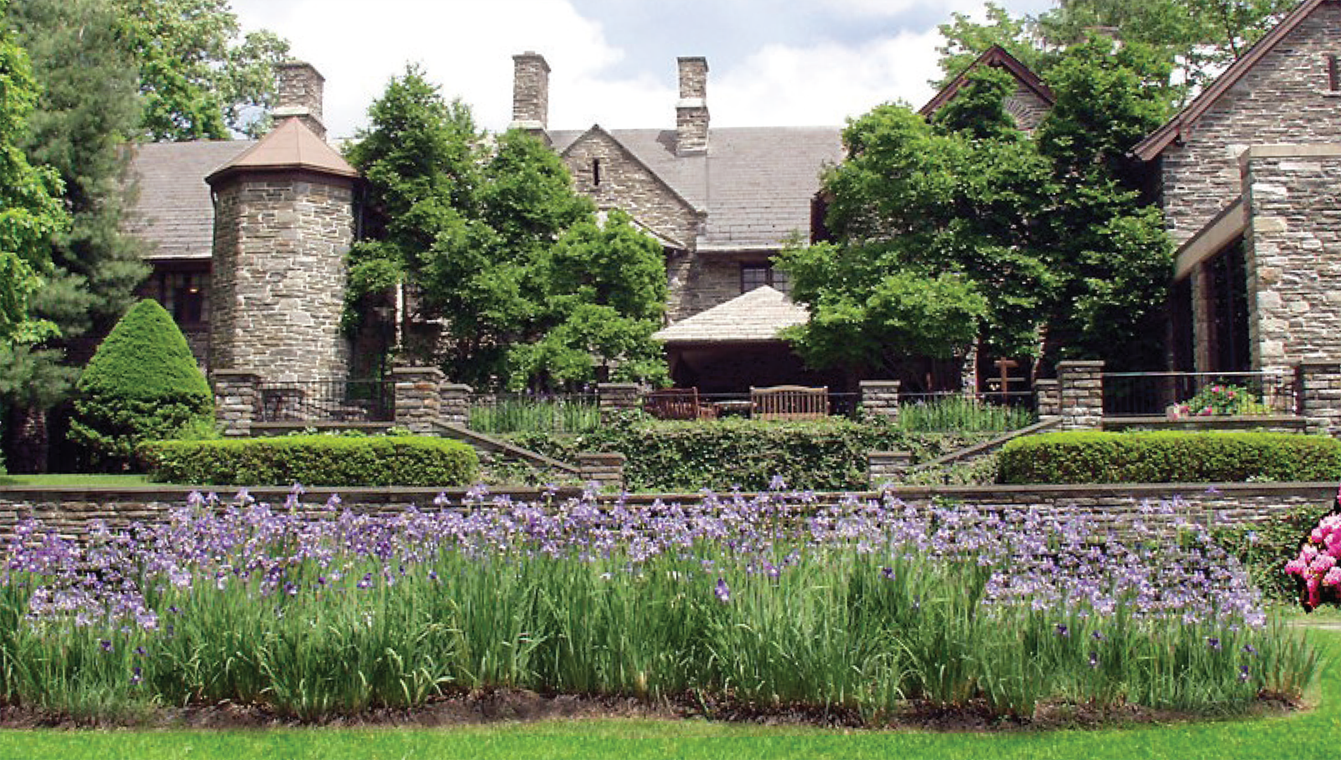
“Next in order to religious knowledge, history is the pivot upon which our curriculum turns.” (Mason, Philosophy of Education, p. 273)
“Therefore, teaching, talk and tale, however lucid or fascinating, effect nothing until self-activity be set up; that is, self-education is the only possible education; the rest is mere veneer laid on the surface of a child's nature.” (Mason, Philosophy of Education, p. 240)
“[Charlotte Mason’s method] aims at giving the child ideas which will grow into principles of conduct, ideas of eternal truths. Her books are largely chosen for the purpose of training her capacity to differentiate and to see the contrast between the ideas which are of the moment and those which are of eternity. Such a child is being trained all the time for life as it is to-day; she has learnt in her literature, her history, her citizenship, her geography, her science, to question and to reason, to weigh, to appreciate at their proper value the kaleidoscope of passing ideals and aims with the slow and steady progress toward Christian Ideals.” (Shelley, “Education in the Parents’ Union School," Parents’ Review, Volume 47)
Charlotte Mason argues that “self-education is the only possible education.” What does she mean by this claim, and what are its implications? Using the varied subject of history as our example, we will examine how this transformative principle directs the materials and methods of the subject and becomes the basis of a student’s independence and continued interest in the world.
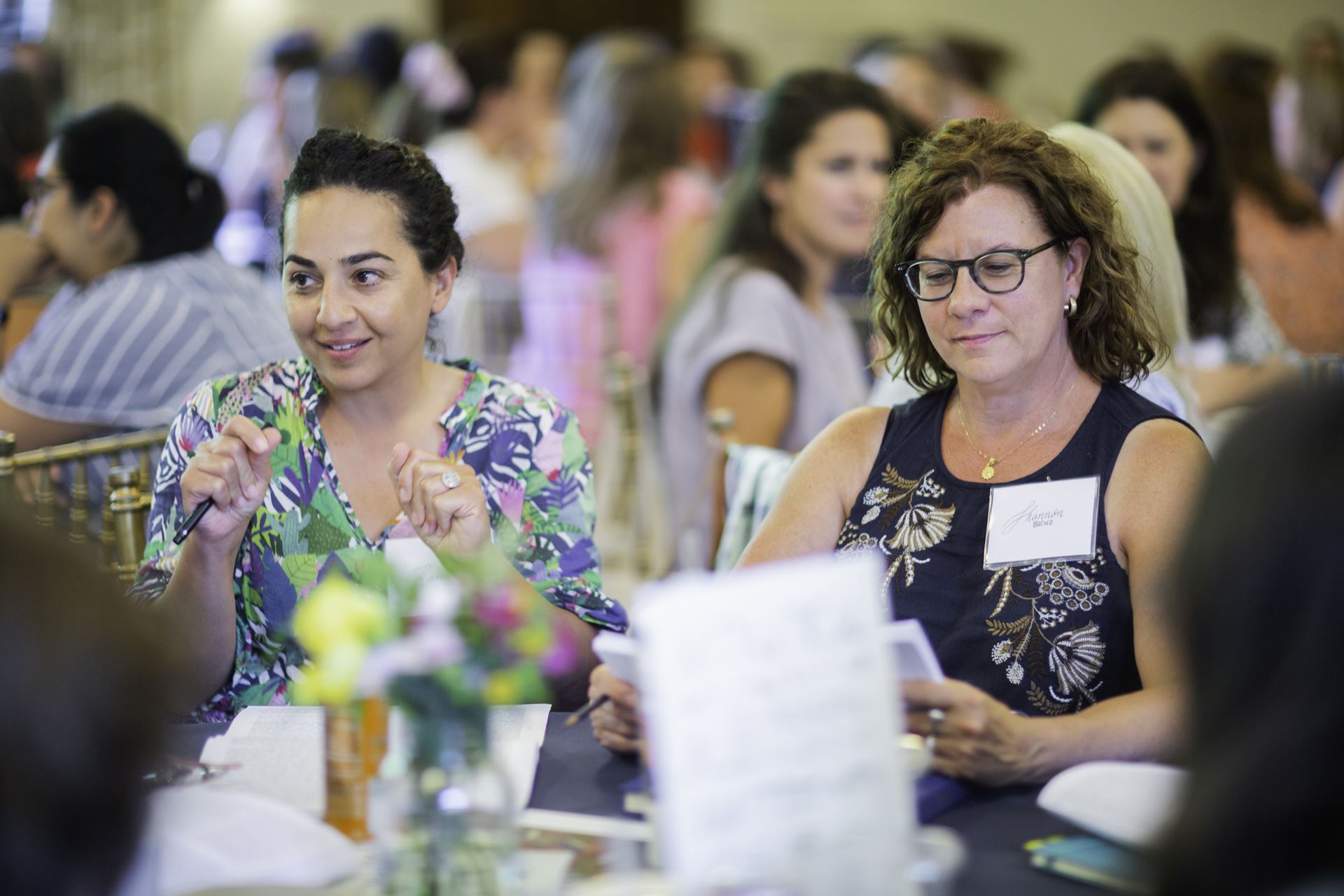
We will explore these ideas and their practical application from a broad perspective:
Self-Activity and Masterly Inactivity - Charlotte Mason’s philosophy offers us a whole that hangs together: our understanding of personhood guides our understanding of knowledge and our aims of education. From this foundation stems Mason’s concepts of “self-activity” and “masterly inactivity,” demarcating the work of student and teacher. By embracing these intertwining ideals, both can enjoy their work and thrive and grow.
Rooted in Principles - Mason’s approach to history, with its various streams and unique ordering, promotes mental activity, cultivates habit, and enlivens the imagination. This method demonstrates our common humanity with all others, allowing for both humility and judgment.
Living History Texts - The unique richness of Mason’s program for history allows for students to read from a wide range of voices. Students consider not just facts, but culture; not just effects, but causes; not just events, but how those events are recorded. History is learned not just from a narrative text, but also from the art, clothing, poetry, architecture, and fiction of the period studied. And yet the program never becomes a unit study of carefully orchestrated lessons, but rather allows the student to draw connections between the ideas.
Narration, Notebooks, and the Student as Historian - In Mason’s method, students are encouraged to narrate in a variety of formats, including formats uniquely suited to the study of history. Through this work, students themselves do the act of history-keeping and take up the work of the historian. They learn to “question and to reason, to weigh, to appreciate at their proper value” the past and present. This call to deep and thoughtful work inspires care and aids in smooth, lively lessons.
History in Leisure and Life - A student’s study of history extends beyond the lesson into their leisure time and what Mason called “afternoon occupations.” The delightful variety of these history studies plays a significant role in the student’s assimilation of ideas and offers an enlivening freedom that promotes independence and interest.
Preparing Living Lessons - Preparing for this broad study of history with its varied books and materials can seem overwhelming or time-consuming for the teacher. But a principled approach and helpful schematic for such work can ease preparation and make it an enjoyable part of the teacher's own continued learning and growth. It aids in a refreshing classroom atmosphere that supports the student’s independence and relationship with knowledge.
Becoming “Guide, Philosopher, and Friend” - A commitment to our principles clarifies our role and allows our students to mature in discipline and thought. This commitment, coupled with Mason’s method for history study, helps form young adults prepared for their vocation and eager for lives of service.
To understand principles, we must work through them in practice; for our practice to remain living and flexible, it must be rooted in our principles. At the CMEC, we are committed to a foundational understanding of Mason’s methods informed by real-life experience. Attendees have the chance to practice Mason’s methods themselves in a restful and supportive atmosphere. This means those new to Mason's philosophy and those experienced in her approach are offered fresh ideas. This cohesive and deep consideration of a single theme from a variety of angles allows for educators to become “guide, philosopher, and friend.”
Around our theme of history and self-education, we will have time to read and narrate, sing and recite, study art and artifact, craft our own timelines and look at school lessons. This will allow us to know our subject deeply and remain refreshed throughout the time together.
Committed to an atmosphere of beauty and welcome, the retreat is held in the historic mansion at the Inn at Villanova, with good food and time for fellowship -- the perfect setting for a retreat on history, rooted in personhood! Meals are included in the registration fee. Attendees also have the option to book a room at the Inn if they choose (not included in the cost of registration).
We will begin with an optional gathering on Sunday evening with dessert and a chance to reflect on our own history, as a way to get to know each other and practice Mason’s methods ourselves.
A special event on Monday evening will include dinner on site. Attendees will also have time to shop Riverbend Press products, talk with the CMEC Team, and connect with other mothers from their area and across the country.
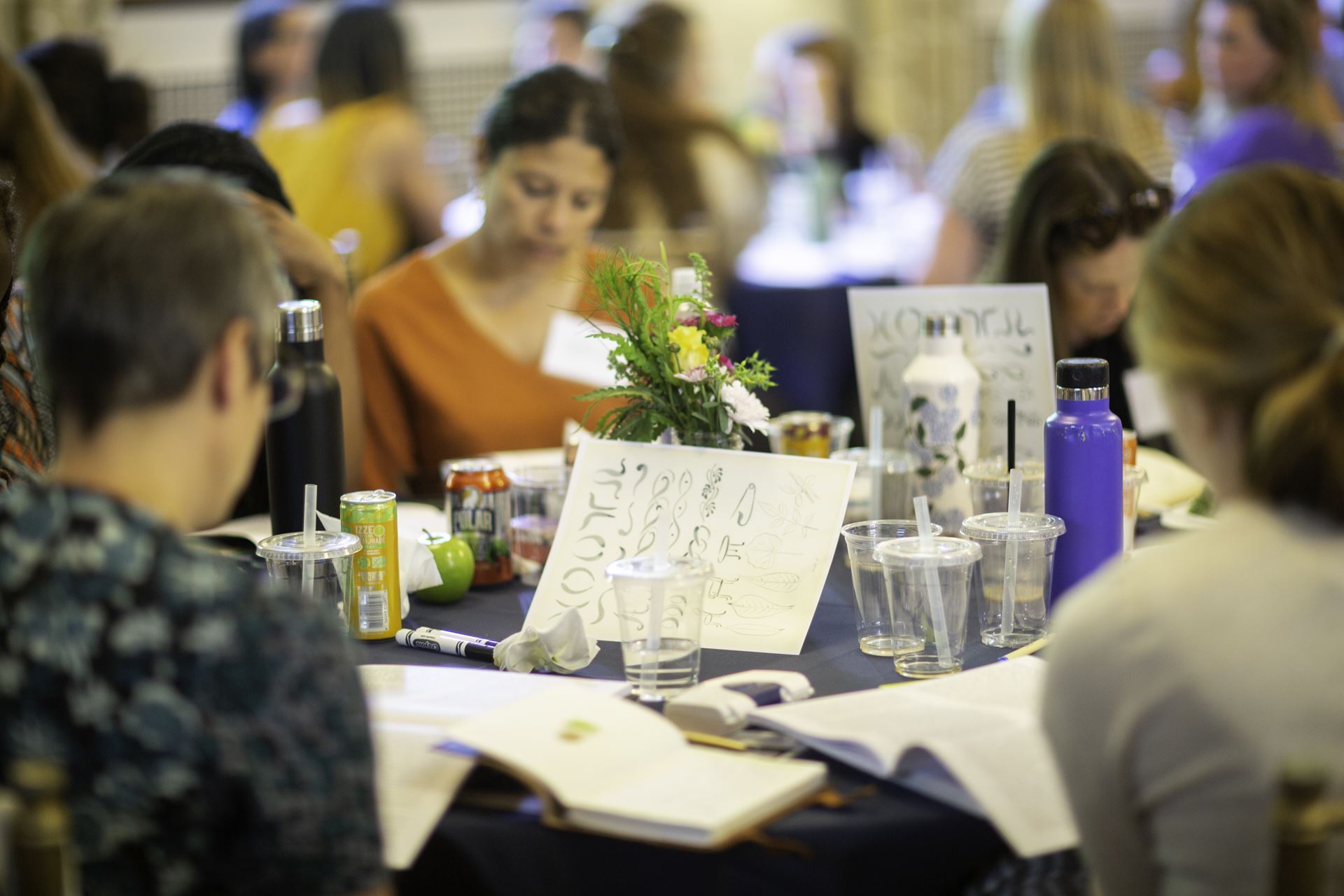
Date: Monday, July 15 - Tuesday, July 16, 2024 (with optional welcome event on Sunday evening, July 14)
Location: The Inn at Villanova University, 601 County Line Rd., Wayne, PA 19087
Cost:
CMEC member - $260
Non-member - $300
(The early registration discount period ended on April 15th.)
Conference registrations are non-refundable.
This event will not be available via livestream. However, we do plan to offer the recordings afterward as a package for purchase.
Time: Talks and workshops are planned for 9am-4pm on Monday and 9am-5pm on Tuesday. The optional Sunday welcome event is planned for 6-9pm. The Monday dinner is planned for 4-9pm.
Optional Welcome Event: Join us on site for an optional meet-and-greet event on Sunday evening from 6-9pm. Dessert will be served.
Meals: Includes light breakfast, lunch, and refreshments on Monday and Tuesday and special event dinner on Monday evening. Refreshments will also be served at the Sunday evening event.
Lodging: Hotel stay is NOT included in the cost of registration. All hotel reservations should be made separately by the retreat attendee.
A block of rooms has been reserved at The Inn at Villanova University. When calling to claim one of these rooms, please tell the Inn you are booking from the CMEC room block. The room block at the discounted rate is ONLY available until May 14. After that date, the rooms are released for public reservations and the rate will increase. 4/5 UPDATE: The hotel rooms are currently all booked. See an additional option below.
A second hotel option is Hyatt House King of Prussia. Reservations may be made by visiting this link. Or call 1-800-993-4983 and reference group code: G-7CME. Reservations must be made on or before June 13, 2024, with a Credit Card Guarantee Hold, per room reservation. Reservation requests after this date are subject to availability and at the hotel’s prevailing rates. Group rates: Deluxe Studio King: $169.00/night + 10% tax / Studio Double Queen: $169.00/night + 10% tax.
Transportation: Attendees will be responsible for any transportation (e.g., to/from the airport). There is plenty of parking on site.
Infants and Children: You are welcome to bring an infant with you to this retreat. Please be prepared to take a crying baby out of the meeting space so as not to distract the other attendees. We are not able to accommodate older children or teens at this conference.
For Those from Out of Town: If you would like to arrange to share hotel rooms or rides to and from the airport, contact dawn@thecmec.org to connect with other attendees.
Planning Your Trip - The Philadelphia Museum of Art:
We wanted to let you know about a special exhibit of Mary Cassatt’s work at the Philadelphia Museum of Art this summer. The exhibit, titled Mary Cassatt at Work, will contain over 130 of her diverse works and is the first major exhibition of Cassatt’s work in 25 years. The museum’s website notes that the exhibit will include “works that follow the artist’s evolving practice and demonstrate her interest in the ‘serious work’ of artmaking. The exhibition will present new findings about the materials she used and her processes—which were advanced for her era…”
The Philadelphia Museum of Art is a 25-minute drive from The Inn at Villanova. A visit to the museum would be a worthwhile addition to your summer travel plans. Mary Cassatt at Work tickets go on sale April 1, and can be purchased here. Advanced ticket purchase is recommended.
Additional Policies: Attendees will need to sign an event waiver at the door.
Please contact dawn@thecmec.org with any questions.
Our Speakers:
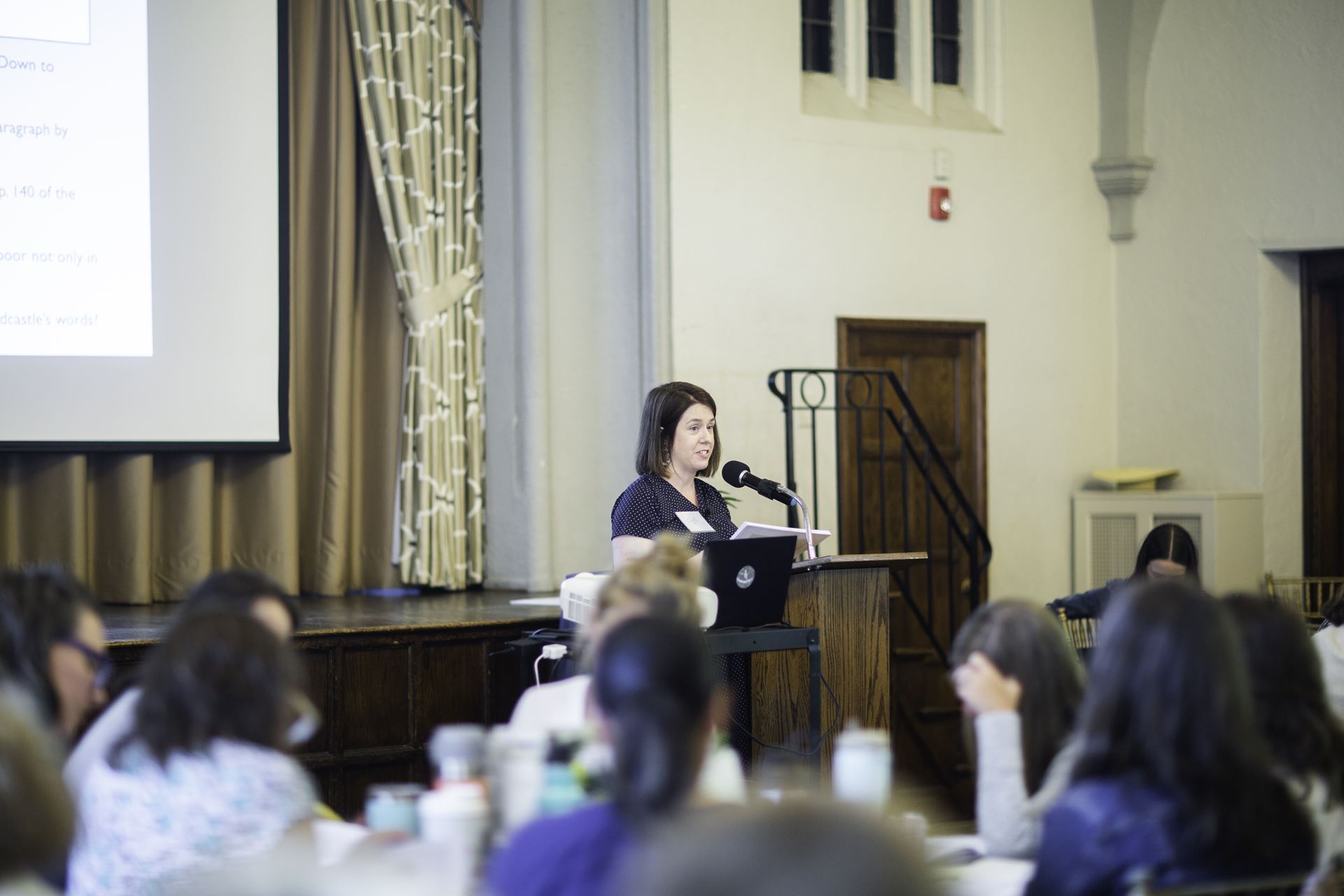
Celeste Cruz
Celeste lives in the San Francisco Bay Area with her husband and their eleven children. With a graduate degree in English and a background in European humanities and art history, she has taught literature and writing in classroom and small group settings. She discovered Charlotte Mason before her children were born and has enthusiastically studied her philosophy ever since, but her most rewarding experience has been putting that philosophy into practice with her own children at home. Besides organizing a local Mason group, she shares the joys of home education at Joyous Lessons and @celeste_cruz, collects Mason-style notebook work @keepingcompanycm, and speaks at retreats and conferences nationwide. Celeste serves the CMEC in a variety of ways, including contributing to community projects and acting as managing editor.
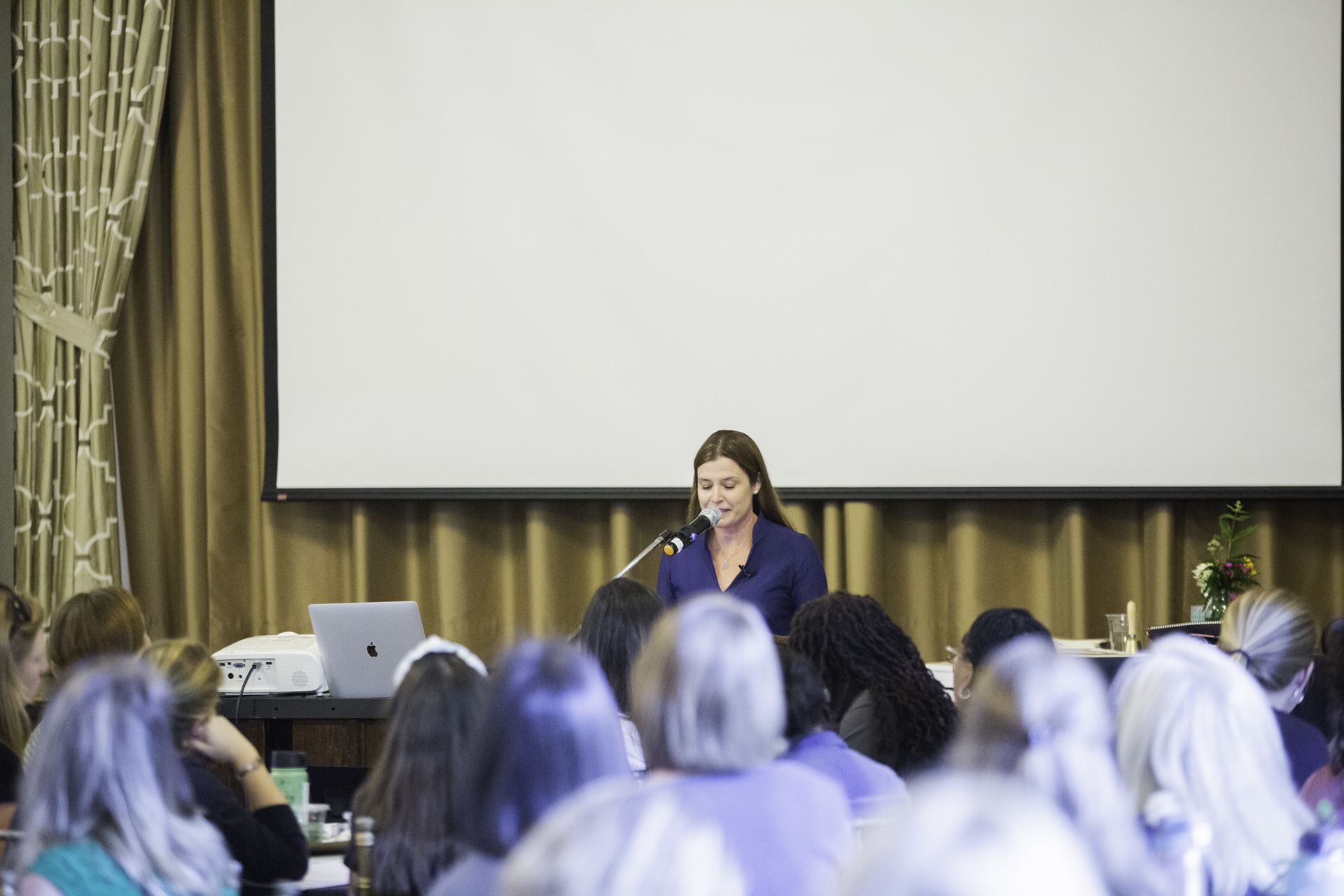
Amy Snell
With a graduate degree in literature from the University of California-Irvine, Amy taught in a variety of classroom environments. She then discovered Charlotte Mason, whose philosophy quickly convinced her to begin homeschooling. As her family thrived using Mason’s methods and grew to include five children, Amy wanted to share and learn more about Mason’s philosophy with others, including speaking at national conferences and local retreats, hosting Mason book discussions and workshops for parents, running a Nature Study Club, facilitating Truth, Beauty, Goodness afternoons, and creating the Mason Academy as director, teacher, and parent. Amy now serves as the Board President of the Charlotte Mason Educational Center and heads our curriculum team and community projects. You can find Amy on Instagram @learninghowtolivecm.
Registration is now closed for this event.